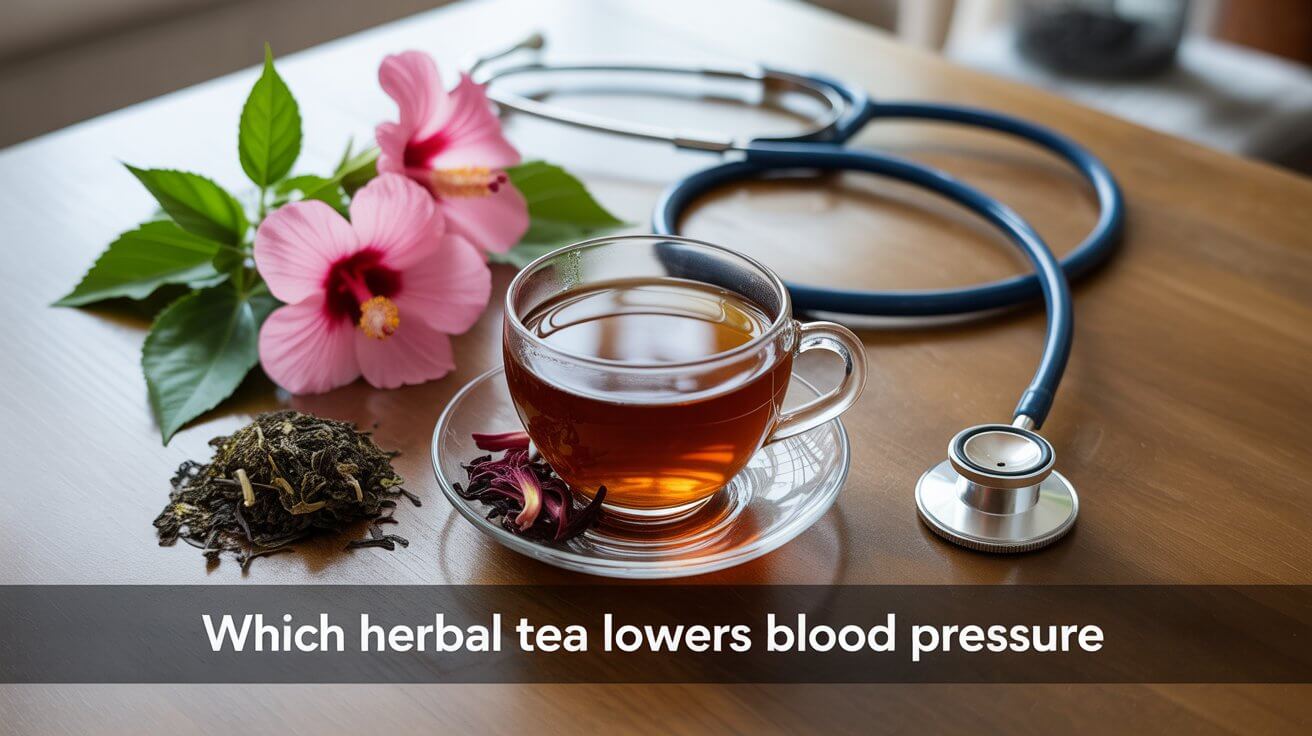High blood pressure, or hypertension, affects over 1.3 billion people worldwide as of 2025, according to the World Health Organization. It’s a major risk factor for heart disease, stroke, and kidney failure. While prescribed medication remains essential for many, an increasing number of people are exploring natural and evidence-backed remedies to support healthy blood pressure including herbal teas.
So, which herbal tea actually helps lower blood pressure? And what does science say in 2025? Let’s explore the latest insights, the most effective options, and how to include them in your wellness routine.
How Herbal Tea Affects Blood Pressure
Herbal teas contain bioactive compounds like flavonoids, polyphenols, and antioxidants that help regulate vascular tone, reduce inflammation, and promote relaxation. These compounds influence blood pressure by:
-
Relaxing blood vessels (vasodilation)
-
Improving endothelial function (lining of blood vessels)
-
Reducing oxidative stress that stiffens arteries
-
Calming the nervous system, reducing stress-related hypertension
A 2024 review in the Journal of Functional Foods found that daily herbal tea consumption for 6–12 weeks can lead to measurable reductions in both systolic and diastolic blood pressure, especially when paired with exercise and a balanced diet.
Best Herbal Teas to Lower Blood Pressure (Backed by 2024–2025 Research)
Not all teas work the same. Below are the top herbal teas scientifically linked to better blood pressure control.
1. Hibiscus Tea – The Most Researched Natural Option
Hibiscus tea remains the gold standard among herbal teas for hypertension. A 2024 clinical study published in Phytotherapy Research confirmed that drinking 2–3 cups daily can reduce systolic pressure by up to 7 mmHg.
-
Why it works: Rich in anthocyanins and hibiscus acid, which act as natural ACE inhibitors, relaxing blood vessels.
-
Taste: Tart, cranberry-like flavor refreshing hot or cold.
Expert note: Many users find results noticeable within 2–4 weeks of consistent use.
2. Green Tea – Gentle but Powerful Antioxidant Support
Green tea is packed with catechins like EGCG, which improve circulation and reduce arterial stiffness.
-
A 2025 review from Nutrients found that green tea drinkers had a 15% lower risk of hypertension compared to non-drinkers.
-
Best consumed: 1–2 cups daily, ideally before noon (contains mild caffeine).
Pro tip: Matcha, a powdered green tea form, delivers higher antioxidant concentration per serving.
3. Chamomile Tea – Stress Reduction for Heart Balance
Chamomile’s real power lies in its calming and anti-anxiety effects. Since stress is a major trigger for blood pressure spikes, chamomile tea helps indirectly lower BP by relaxing the nervous system.
-
A 2024 meta-analysis from Frontiers in Nutrition linked regular chamomile intake to lower cortisol levels and improved heart rate variability.
-
Ideal timing: Evening before bed for best relaxation response.
4. Rooibos Tea – Caffeine-Free and Heart-Friendly
Rooibos, a South African red bush tea, has gained renewed attention in 2025 due to its unique flavonoid compound called Aspalathin.
-
This compound supports vascular relaxation and improves nitric oxide production.
-
Perfect for caffeine-sensitive individuals.
Comparison insight: While hibiscus acts faster, rooibos is gentler and excellent for long-term cardiovascular support.
5. Ginger Tea – Circulation Booster and Anti-Inflammatory
Ginger’s gingerol compounds stimulate blood flow and help prevent blood vessel constriction.
-
A 2025 study in Hypertension Research found that moderate ginger tea intake (1 cup daily) may improve systolic BP by 4–5 mmHg over 8 weeks.
-
Combine ginger with lemon or turmeric for added detox and anti-inflammatory benefits.
How to Incorporate Herbal Teas Into Your Routine
Creating a consistent tea routine can enhance benefits over time. Here’s how:
-
Start with 1–2 cups daily — one in the morning (green or ginger) and one in the evening (chamomile or hibiscus).
-
Avoid added sugar — sweeteners can counteract benefits.
-
Rotate blends — alternate between hibiscus and rooibos for variety.
-
Combine with healthy habits:
-
Regular physical activity
-
Low-sodium, high-potassium diet
-
Proper hydration and stress management
-
Important Precautions
While herbal teas are generally safe, they can interact with certain medications, especially:
-
Blood pressure drugs (ACE inhibitors, beta blockers)
-
Blood thinners (like warfarin)
-
Diuretics
Always consult your healthcare provider before starting a new tea regimen, particularly if you’re already on medication.
Trend Insight: Wellness Teas and Slimming Blends (as of 2025)
Modern wellness teas, such as All Day Slimming Tea, combine herbs like green tea, oolong, and hibiscus for a dual effect supporting both metabolism and cardiovascular health.
Many wellness enthusiasts in 2025 now use these blends as part of holistic heart health routines, alongside herbal teas focused on blood pressure.
Final Thoughts
Herbal teas are more than comfort drinks they’re natural, science-backed allies in heart and blood pressure management.
-
Best choice for fast results: Hibiscus tea
-
Best for stress-related BP: Chamomile
-
Best caffeine-free option: Rooibos
-
Best for circulation boost: Ginger
When enjoyed consistently and paired with healthy living, these teas can help maintain steady blood pressure and overall wellness a small daily ritual with big long-term rewards.


Leave a Reply